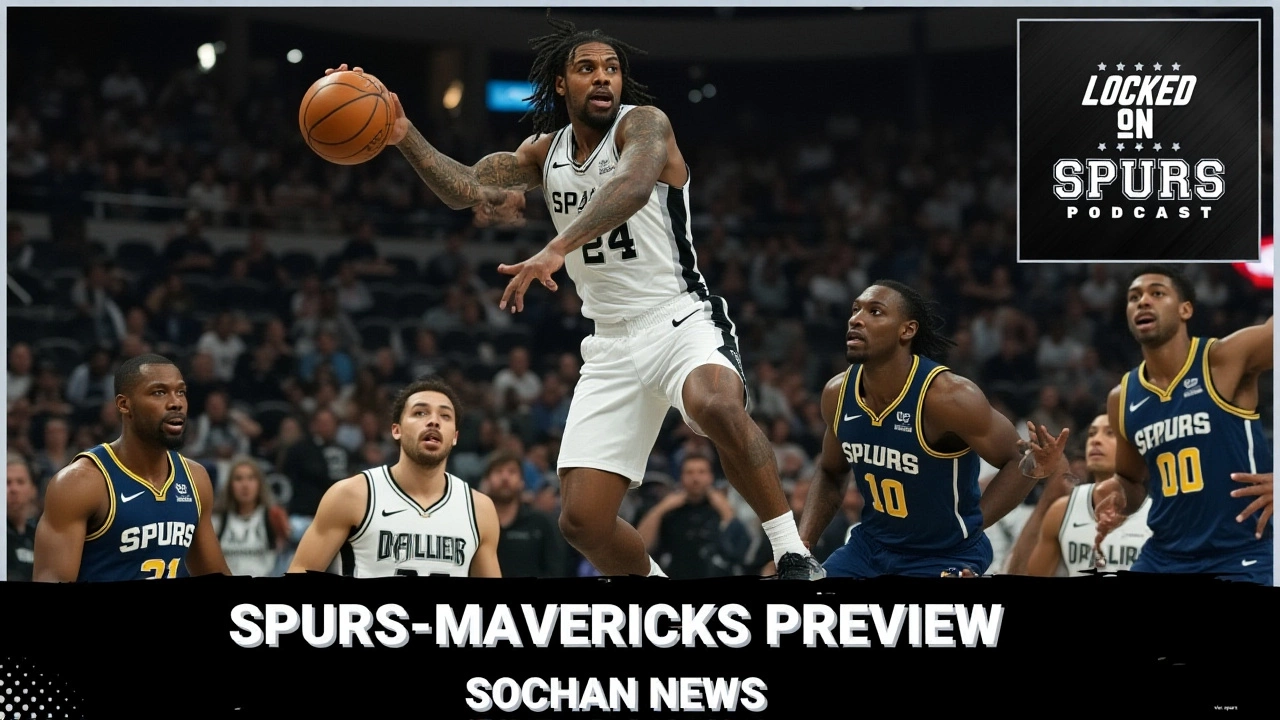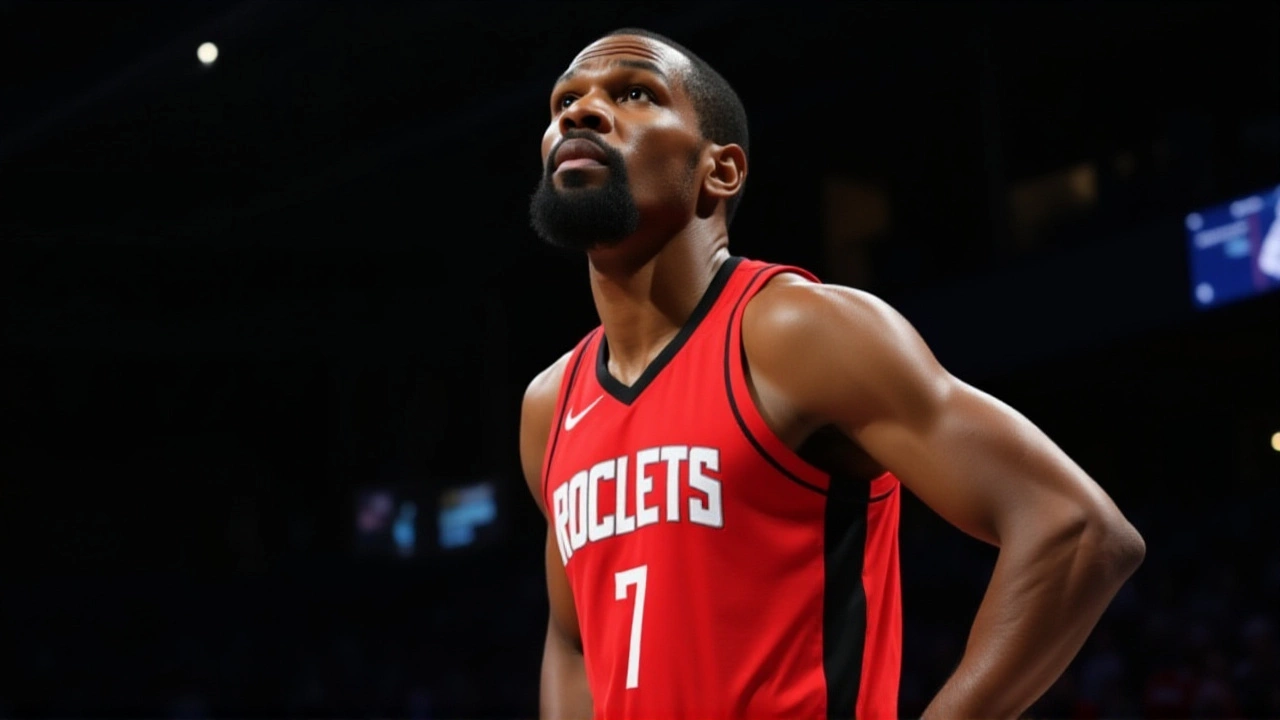When Victor Wembanyama, the 7‑ft‑4 center for San Antonio Spurs Basketball Club exploded for 40 points on his first regular‑season night since February, the Spurs turned the American Airlines Center into a personal highlight reel and handed the Dallas Mavericks a 125‑92 drubbing on Oct. 22, 2025.
The game was the 2025‑26 NBA season openerAmerican Airlines Center, Dallas, TX. From the opening tip‑off, the Spurs looked intent on making a statement, and the final score proved they succeeded beyond anyone’s wildest estimates.
Spurs’ Historic Season Opener
San Antonio’s bench erupted early, with sharpshooter Max Christie drilling three‑for‑four from beyond the arc and the rookie point guard Ron Holland dishing out five assists in just eight minutes. Stéphon Castle, fresh off a Rookie‑of‑the‑Year campaign, added 22 points, while Dylan Harper, the second overall pick, slid in off the bench midway through the first quarter and tossed in 15 quick points.
By the end of the first quarter the Mavericks edged the Spurs 29‑28, but the tide turned soon after. The second quarter saw San Antonio rip off a 32‑22 run, helped by Wembanyama’s first 15‑point burst. The third and fourth quarters were almost identical, with the Spurs outscoring Dallas by 33‑21 and 32‑20 respectively. The cumulative 33‑point margin set a new franchise record for most points in a season‑opening game.
Wembanyama’s Return Lights Up Dallas
Wembanyama’s stat line reads like a movie trailer: 40 points, 15 rebounds, three blocks, and a handful of alley‑oop slams that left even veteran center Anthony Davis and rookie Dereck Lively II scrambling for the bench after fouls. One ESPN analyst quipped the matchup felt “like playing against your dad in the driveway when you’re eight,” a nod to the towering physical advantage Wembanyama brings.
Beyond the raw numbers, his presence reshaped the Mavericks’ defensive schemes. Dallas tried to double‑team him early, only to leave shooters like P.J. Washington open on the perimeter, where they missed more than they made. The result: a night of missed look‑aways, contested layups, and a visible frustration that grew louder with each missed shot.
Rookie Flagg’s Rocky Debut
Two days younger than LeBron James when he started an NBA game, Cooper Flagg entered the arena with a lot of buzz and a lot of pressure. The 18‑year‑old Duke standout, drafted No. 1 overall, logged a double‑double on the line—10 points and 10 rebounds—but it came after a 13‑minute scoreless stretch that stretched until the opening possession of the second half.
Flagg’s shooting night was rough: 4‑of‑13 from the field and a lone three‑pointer. Sports Illustrated noted he “looked uncomfortable at point guard,” and critics wondered whether the team’s front office rushed him into a starting role before he could adjust to the NBA’s speed. Still, his 10 rebounds hinted at a defensive nose for the ball that could blossom with experience.
Mavericks’ Struggles and Future Outlook
The absence of star guard Kyrie Irving, still rehabbing an ACL tear, left a gaping hole in Dallas’ offense. Coach Jason Kidd had hinted before the game that if you saw Irving practicing you’d think he was ready, yet the medical timeline still projects “months away.” Without Irving’s playmaking, the Mavericks relied heavily on Davis and Washington, who combined for 39 points but could not compensate for the team’s overall shooting slump (just 34 % from the field).
The loss sparked a chorus of concern across the media. Sports Illustrated’s post‑game analysis warned that “everything looked difficult for Dallas on Wednesday’s loss, and that will only make the pressure mount.” Mavs Moneyball’s recap called the defeat “embarrassing,” pointing to Flagg’s uneasy handling of the ball as a symptom of broader growing pains.
Looking ahead, Dallas faces the Houston Rockets next on Oct. 24, a game that could either halt the negative spiral or deepen it. The Rockets, themselves rebuilding, are expected to test the Mavericks’ still‑shaky perimeter defense. For the Spurs, the next challenge is a home game against the Denver Nuggets on Oct. 25, where San Antonio will look to ride the momentum of a record‑breaking opener.

What This Means for the NBA Landscape
Wembanyama’s return injects a fresh narrative into the Western Conference. If he can stay healthy, the Spurs instantly become a playoff contender, forcing teams like the Golden State Warriors and the Los Angeles Lakers to re‑evaluate their own rotations. For the Mavericks, the early season is now a litmus test for their rebuilding timeline. They’ll need to accelerate Flagg’s development, perhaps easing him into a role that leverages his size rather than forcing him into a traditional point‑guard slot.
Meanwhile, the broader league watches how elite young talent—Wembanyama, Flagg, Harper, Castle—shapes the next era of play. Their performances this season could dictate whether the NBA continues its shift toward positionless basketball or sees a resurgence of traditional big‑man dominance.
Key Facts
- Final score: Spurs 125, Mavericks 92.
- Victor Wembanyama: 40 points, 15 rebounds, 3 blocks.
- Cooper Flagg: 10 points, 10 rebounds, 4‑of‑13 shooting.
- Spurs bench combined for 35 points.
- Kyrie Irving out for the season (ACL recovery).
- Next games: Mavericks @ Rockets (Oct 24), Spurs vs. Nuggets (Oct 25).
Frequently Asked Questions
How might Victor Wembanyama’s health affect the Spurs’ playoff chances?
If Wembanyama stays injury‑free, his ability to dominate both ends of the floor gives San Antonio a legitimate shot at a top‑seed in the West. Even a modest dip in minutes would still make him a focal point, but recurring health issues could demote the Spurs to a mid‑tier team, forcing them to rely on depth rather than star power.
What adjustments does Dallas need to make for Cooper Flagg’s development?
Analysts suggest easing Flagg into a forward‑centric role that capitalizes on his size and rebounding before burdening him with full‑court point‑guard duties. Pairing him with a veteran floor‑general could help him read defenses better and gain confidence in the half‑court offense.
Why is Kyrie Irving’s absence such a blow for the Mavericks?
Irving provides elite ball‑handling and clutch shooting that Dallas lacked against San Antonio’s interior presence. Without his playmaking, the Mavericks struggled to generate quality looks, leading to a low field‑goal percentage and an over‑reliance on post scoring, which the Spurs neutralized.
What does this game indicate about the Western Conference power balance?
The Spurs’ blowout demonstrates that a healthy Wembanyama instantly reshapes the conference hierarchy. Teams without a comparable star may need to double‑down on depth and three‑point shooting to stay competitive, while the Mavericks must accelerate their rebuild if they hope to stay relevant.
When is the next chance to see the Spurs and Mavericks face off?
The two squads meet again on Dec. 15, 2025, at the AT&T Center in San Antonio. That matchup will provide a clearer picture of how quickly both teams adapt after the dramatic season‑opening results.

